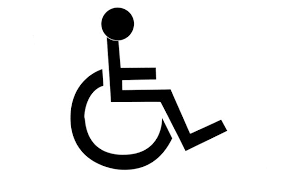invalid
英 [ɪnˈvæl.ɪd]
美 [ɪnˈvæl.ɪd]
- adj. 无效的;有病的;残废的
- n. 病人;残废者
- vt. 使伤残;使退役
- vi. 变得病弱;因病而奉命退役
使用频率:

记忆方法
1、val- "be strong" + -id.
2、含义:strong, effective, having force in law, legally binding, supported by facts or authority.
3、in- "not" + valid.
2、含义:strong, effective, having force in law, legally binding, supported by facts or authority.
3、in- "not" + valid.
中文词源
invalid 无效的
in-,不,非,valid,有效的。
英语词源
- invalid
-
invalid: see valid
- invalid (adj.1)
- "not strong, infirm," 1640s, from Latin invalidus "not strong, infirm, weak, feeble," from in- "not" (see in- (1)) + validus "strong" (see valid). Specific meaning "infirm from sickness, disease, or injury" is from 1640s.
- invalid (adj.2)
- "of no legal force," 1630s, from special use of Latin invalidus (see invalid (adj.1)).
- invalid (n.)
- 1709, originally of disabled military men, from invalid (adj.1). Invalides is short for French Hôtel des Invalides, home for old and disabled soldiers in the 7th arrondissement of Paris.
权威例句
- 1. Margaret resides with her invalid mother in a London suburb.
- 玛格丽特同她病弱的母亲住在伦敦郊区。
- 2. At best Nella would be an invalid; at worst she would die.
- 内拉往好里说会落下残疾,往坏处说可能会生命不保。
- 3. The treaty was declared invalid because it had not been ratified.
- 条约没有得到批准,因此被宣布无效。
- 4. A passport that is out of date is invalid.
- 护照过期是无效的.
- 5. Dr. Smith looked in on the invalid the day before yesterday.
- 史密斯大夫前天去看望那个病人.
